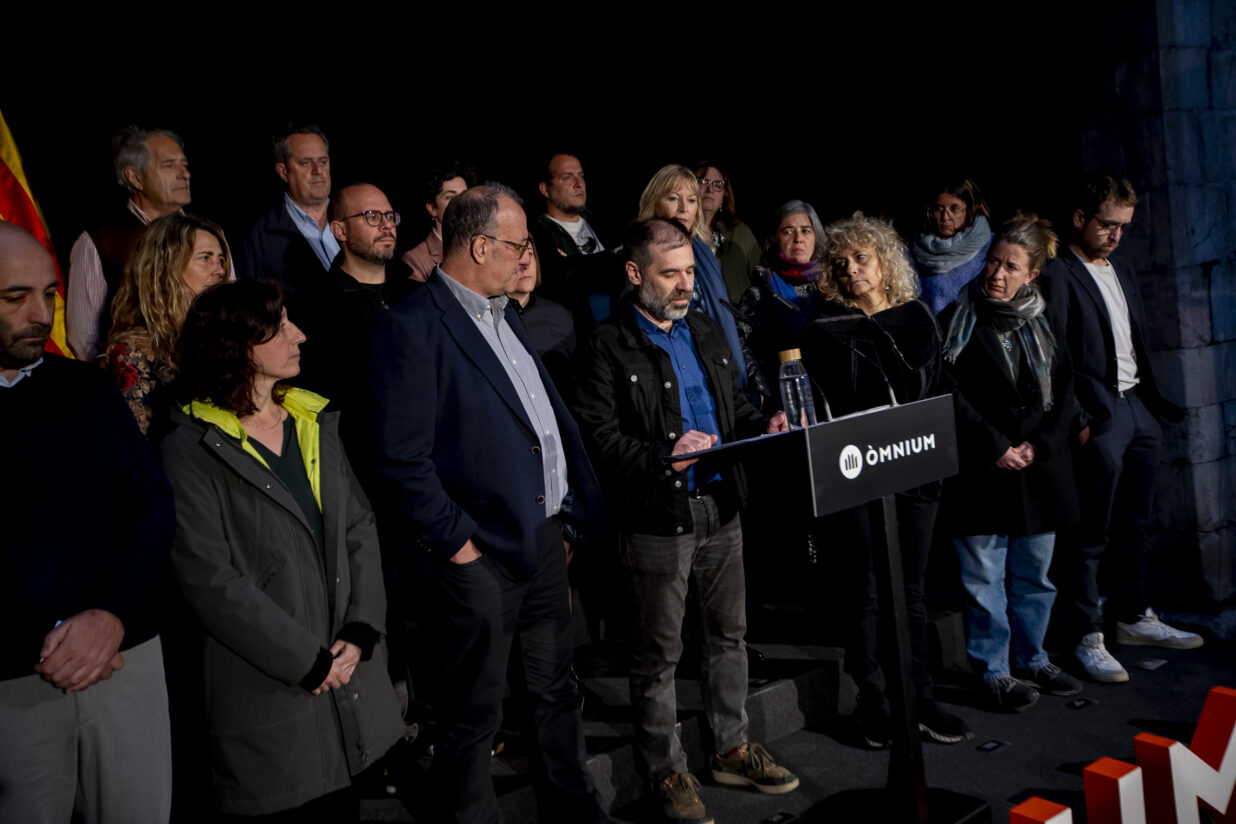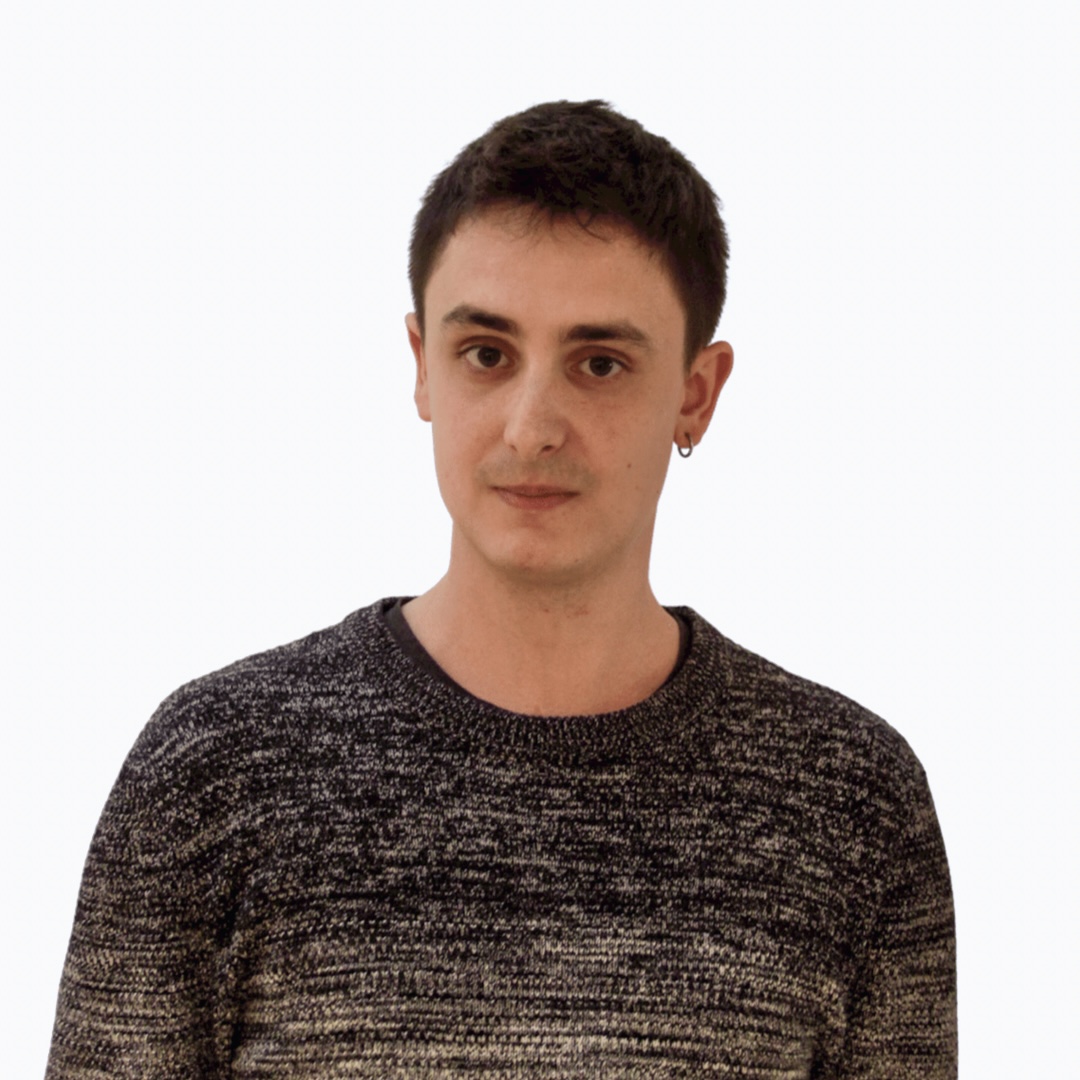12.04.2024 - 12:03
|
Actualització: 13.04.2024 - 03:20
Ruben Wagensberg, Oleguer Serra, Jesús Rodríguez, and Josep Campmajó have been in exile in Switzerland in recent months, where Anna Gabriel and Marta Rovira already found refuge in 2018, with Rovira still there.
Six years after half of Carles Puigdemont’s government went to Belgium, Catalan independence supporters have once again resorted to exile to escape the criminalization of the social mobilizations called by the Tsunami Democràtic, an until then unknown platform that operated clandestinely and demonstrated a significant mobilization capacity. It presented itself publicly as a platform without visible leaders, rooted in the strong Catalan social fabric, and with an innovative digital component in the history of world social movements.
The clandestine nature of the Tsunami Democràtic when calling for protests against the sentences of the political prisoners is precisely explained by the lessons learned in 2017, when the presidents of the ANC and Òmnium Cultural were imprisoned as scapegoats for the massive mobilizations prior to the independence referendum. The success of blocking Barcelona airport on the same day the sentence was published put the organization in the sights of the Spanish state, to the point that its Minister of the Interior, Fernando Grande-Marlaska, threatened criminal reprisals the next day: “Taking over an airport and occupying the runways is no joke. It is a serious criminal behavior that puts many assets of society at risk. […] We have truly effective intelligence and information services, and do not doubt that we will end up knowing who is behind these movements of the Tsunami Democràtic.”
The Spanish National Court judge Manuel García-Castellón then opened a secret case investigating terrorism and rebellion, who had driven the Tsunami Democràtic and what the results of the mobilizations were. But in the following years, it was shelved to the point that in the spring of 2023, the prosecution proposed to downgrade the classification of the events to the crime of public disorder and send the investigation to a court in Barcelona. Faced with this possibility, this past autumn, García-Castellón allowed far-right party Vox and the far-right organization Dignidad y Justicia to intervene as plaintiffs in the case, which has allowed him to maintain the investigation for terrorism despite the opposition of the prosecution. A key move, especially considering that at that time there was already talk of the amnesty that Pedro Sánchez was negotiating in exchange for the investiture, which specifically excluded terrorism offenses in some cases.
The necessary cooperation of the far-right to imprison the Tsunami people
And in this context, on November 6, García-Castellón charged Marta Rovira, Secretary General of ERC; Ruben Wagensberg, secretary of the parliament’s board; businessmen Oriol Soler, Xavier Vendrell, and Josep Campmajó; Marta Molina, a professor and delegate of Intersindical-CSC; journalist Jesús Rodríguez; engineer Jaume Cabaní; and Òmnium Cultural leader Oleguer Serra with terrorism.
All of them were listed in a report by the Civil Guard’s information prefecture as people who had played a significant role in the Tsunami Democràtic, to whom the judge added three more defendants: Carles Puigdemont, whom he places as the maximum responsible for the Tsunami Democràtic; his chief of staff, Josep Lluís Alay, and the Swiss banker of Italian origin Nicola Flavio, whom he attributes the financing of the organization.
The move was significant because in this way, Puigdemont not only entered for the first time in a case that had not affected him until now but could also exclude him from the amnesty. In fact, since then, García-Castellón has been twisting the events of 2019 to present them exactly in the terms that the amnesty law foresees as exclusions. If deaths need to be found, he finds a French tourist who died of a heart attack on the way to Barcelona airport on the day of the blockade, even though until now he had not paid attention to it and at the time the justice system said it was an accidental event. If political groups modify the law to cover the loopholes that the judge exploits, he manages to attribute to the Tsunami Democràtic the injuries of some Spanish police officers injured in protests called by the CDRs. And if all this is not enough, he keeps the card of accusing them also of treason, also excluded from the amnesty.
A barely concealed persecution to keep them all out of the amnesty that has worried the accused and that, given the uncertainty about the behavior of a hyperactive judge after years of not advancing the investigation, has pushed them into exile. “Every day the Spanish National Court moves, and it moves in the same direction: against independence,” said Olivier Peter, Swiss lawyer for Oleguer Serra, at the event in Perpinyà to announce that he was an exile. In this scenario, he said, it is better to be cautious until the amnesty is approved and the courts have to position themselves on how it is applied.
Switzerland, the new epicenter of Catalan exile
When in 2017 Carles Puigdemont, Toni Comín, Lluís Puig, Meritxell Serret, and Clara Ponsatí chose exile, they chose Belgium – although Ponsatí later moved to Scotland – because it was identified as a sufficiently secure territory to avoid extradition since its penal code did not include offenses equivalent to rebellion and sedition, and the European Arrest Warrant could be legally challenged. However, with the crime of terrorism, the situation is much more complicated because it is one of the thirty-two offenses provided for by the European Arrest Warrant system that involve immediate surrender. That is why the new exiles have relied on Switzerland, with a history of respect for political rights, headquarters of international organizations such as the United Nations, and which has already granted refuge to Catalan independence supporters, such as Anna Gabriel and Marta Rovira.
And here are two key details to consider. On the one hand, since Switzerland is not a member of the European Union, the European Arrest Warrant system does not apply to it – which establishes a closed list of offenses – but rather the bilateral extradition agreement with Spain. In addition, in extradition, the Swiss government has the final say, which does not happen with the European Arrest Warrant system. But, in addition, this agreement explicitly excludes extraditions for political offenses. If Judge García-Castellón requests the extradition of the exiles for terrorism in the case of the Tsunami Democràtic, the Swiss justice will have to determine if the request is politically motivated. For now, García-Castellón has ended up with a slap in the face due to the refusal of the Swiss authorities to cooperate in the investigation and provide information about a bank account suspected of financing the Tsunami and about the current address of Rovira. Precisely because they have seen a political motivation there.
“I choose Switzerland for multiple reasons,” explains Jesús Rodríguez in an interview with the newspaper where he works, Directa: “First, I did not want to go far from Catalonia, to facilitate visits from the people I love. In addition, it is a known fact that more people exiled from Catalonia reside in Geneva for years, Anna Gabriel and Marta Rovira, and I read it as a thread of continuity in the history of exile from our country. They have helped me to settle in, and I want to thank them publicly. And not least is the solid track record in defending civil and political rights in this country. The fact that Geneva is home to the United Nations Human Rights Council and some of the world’s leading institutions that ensure freedom of expression and information convinced me to come here.”
This week, García-Castellón made a move that has been interpreted as a first step to summon the accused for questioning and, if he sees fit, order preventive detention. On Tuesday, he informed the lawyers of those who have formally appeared in the case – Oriol Soler, Xavier Vendrell, Marta Molina, Josep Campmajó, Oleguer Serra, Marta Rovira, and Josep Lluís Alay – that they had twenty-four hours to provide “unequivocal addresses” where they would receive the summons to appear at the Spanish National Court. In addition, he asked the Civil Guard to investigate the whereabouts of Jesús Rodríguez, Jaume Cabaní, and Nicola Flavio Giulio, who had not taken the step of appearing in the case.
This does not mean in itself that he will send them the judicial citations imminently, but it has been a trigger for Serra, Campmajó, and Rodríguez, who have maintained a low profile in exile for months, to take the step to explain that they have had to go into exile and shift to the offensive in accusing the Spanish state of violating their political rights.
- More news in English, at VilaWeb
- All the news, in Catalan



